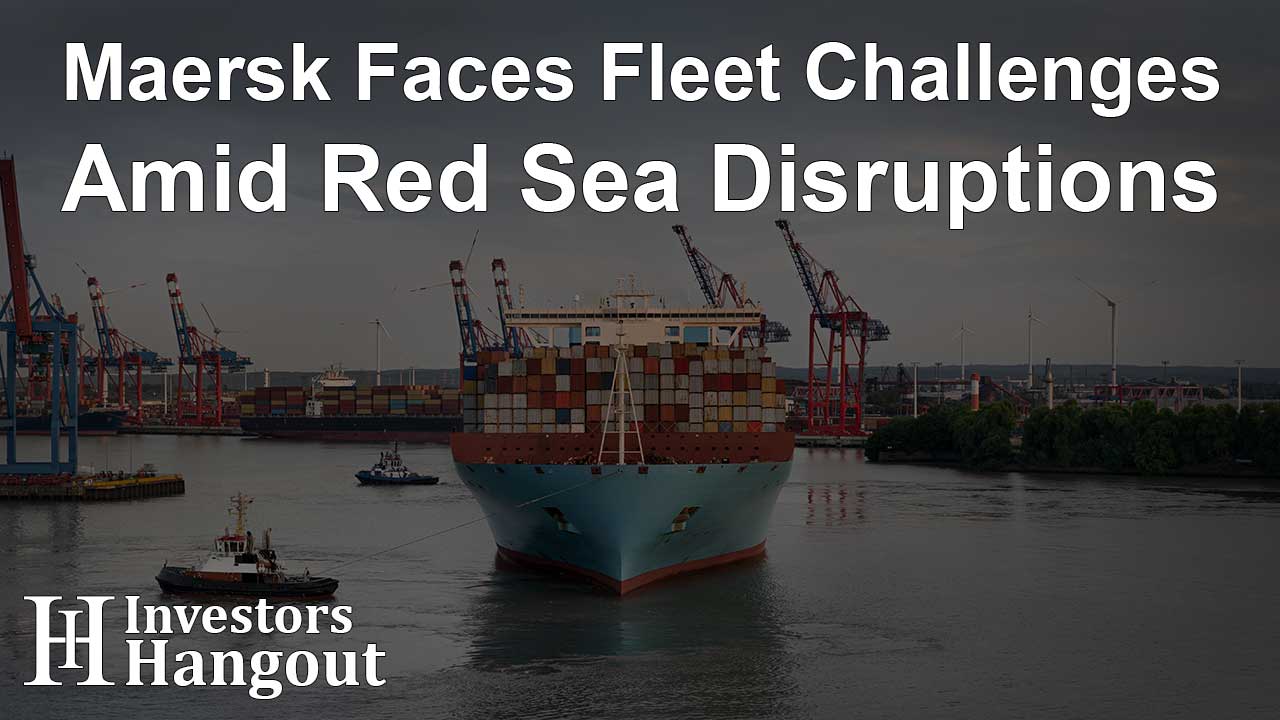Maersk Faces Fleet Challenges Amid Red Sea Disruptions

Ongoing Red Sea Disruptions Impacting Q3 Shipping
The Red Sea has evolved into a hotspot for disturbances influencing container traffic into the third quarter. Leading Danish shipping company Maersk has been especially affected by these difficulties. The disturbances result from actions of Iran-aligned Houthi militants, which raises security issues. Shipping firms have been obliged by this to change their paths, avoiding the Red Sea. Travel times on the longer alternative path around Cape of Good Hope have grown. For carriers, these developments have resulted in higher running costs. Companies depending on consistent delivery are experiencing delays and more expensive freight. The ambiguity of these disturbances makes budget control and planning challenging. The fact that these problems are always changing implies ongoing difficulties ahead. Companies as well as carriers have to change with this changing environment.
Maersk Diverts Vessels Around Cape of Good Hope
Maersk has acted decisively by grouping its ships around Cape of Good Hope in Africa. This diversion in path is a direct reaction to the threat Houthi militants in the Red Sea create. The diversion tries to guarantee ship and cargo safety. Still, this other path is much more than the conventional Red Sea passageways. This has changed goods' transit times, so influencing delivery plans. Higher fuel usage and running costs are other effects of the rerouting. Notwithstanding these difficulties, Maersk gives the security and safety of its activities top importance. The business keeps evaluating the matter to make wise decisions. Consumers are advised of possible service changes and delays. Maersk is still dedicated to provide its customers the best answers.
Rising Freight Rates Due to Extended Voyage Times
Extended trip times around the Cape of Good Hope have driven freight rates skyward. Shipping firms have suffered financial consequences from choosing to avoid the Red Sea. Longer routes mean more crew expenses and more fuel costs. Higher freight rates are the way these extra expenses are passed on to consumers. Companies depending on container shipping are suffering as their transportation costs climb. The higher rates are taxing already strained supply chains by world events. Maersk has admitted that these higher expenses most certainly will last for some period. The business aims to strike a mix between keeping customer satisfaction and cost recovery. The scenario emphasizes the complicated dynamics of world shipping routes. Goods rates should remain high as long as the Red Sea stays erratic.
Temporary Nature of Higher Shipping Costs
Vincent Clerc, Maersk's CEO, underlined that the present higher shipping costs are only temporary. The company expects some cost recovery over time even though it is negotiating a difficult phase. Considered as a temporary reaction to the rerouting around the Cape of Good Hope, the higher freight rates Maersk is keeping close eye on the matter and modifying its plans in line. Regarding these temporary actions, the company is dedicated to openness with its consumers. Although more expenses are a burden, they are required to guarantee dependable and safe shipping conditions. Maersk is hopeful about finally running under normal operational expenses. The business is looking at several strategies to help to reduce these costs. Consumers should keep updated about continuous changes. Managing the current disturbances without long-term financial burden is the aim.
Reduced Capacity and Missing Positions in Maersk's Fleet
The Red Sea disturbances are causing Maersk to have lower capacity and missing positions in its fleet. Ship availability and demand have mismatch resulting from the diversion around the Cape of Good Hope. The company's capacity to satisfy present shipping demand is compromised by some vessels not in their usual places. This capacity loss has further taxed Maersk's activities. Under these demanding circumstances, the company is trying to maximize fleet management. Consumers might thus encounter delays or changes in service. Maersk is open about these problems and is searching actively for answers. Notwithstanding the lower capacity, the company wants to minimize the effect on its customers. These little changes help one negotiate the continuous disturbances. Maersk is still mostly concerned in providing consistent services during this period.
About Investors Hangout
Investors Hangout is a leading online stock forum for financial discussion and learning, offering a wide range of free tools and resources. It draws in traders of all levels, who exchange market knowledge, investigate trading tactics, and keep an eye on industry developments in real time. Featuring financial articles, stock message boards, quotes, charts, company profiles, and live news updates. Through cooperative learning and a wealth of informational resources, it helps users from novices creating their first portfolios to experts honing their techniques. Join Investors Hangout today: https://investorshangout.com/